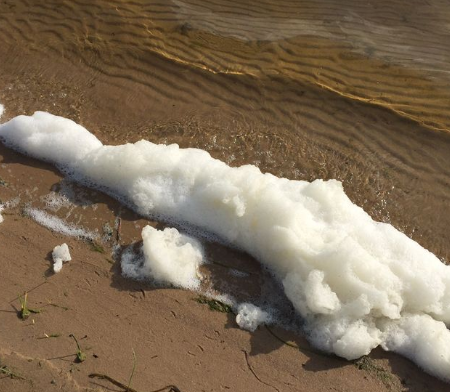The Metro: The lesser known threats to Michigan’s waters
The Great Lakes still gleam and sparkle — but their waters are heavy with the weight of what we’ve done. Algal blooms cloud once-clear bays. Shorelines erode under rising waves.
The lakes are the eternal vessels of what we’ve left behind: aging pipes, invasive species, and poisoned fish. And it’s all amid a warming climate.
Feeding this system is the Detroit River — one of its vital arteries. It’s moved ore and industry, waste and wildlife. A crossing. A corridor. A dumping ground.
Now, a billion-dollar cleanup is on the table. But this isn’t just about sediment and sludge. It’s about legacy and injustice — and whether we can learn to care for what we once used thoughtlessly.
Laura Rubin, director of the Healing Our Waters-Great Lakes Coalition, has spent years asking that question. She joined The Metro on Wednesday to discuss some of the most urgent or overlooked threats to water health across the state.
Use the media player above to hear the full conversation.
More stories from The Metro on Tuesday, May 20, 2025:
Listen to The Metro weekdays from 10 a.m. to noon ET on 101.9 FM and streaming on-demand.
Trusted, accurate, up-to-date.
WDET strives to make our journalism accessible to everyone. As a public media institution, we maintain our journalistic integrity through independent support from readers like you. If you value WDET as your source of news, music and conversation, please make a gift today.Donate today »
More stories from The Metro
The post The Metro: The lesser known threats to Michigan’s waters appeared first on WDET 101.9 FM.




